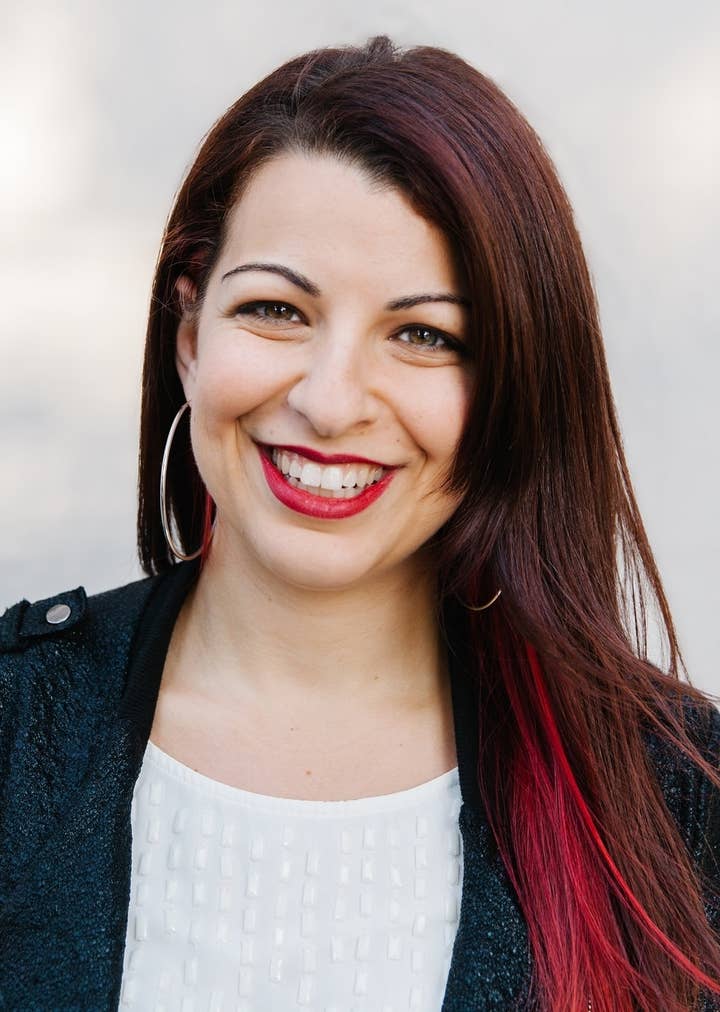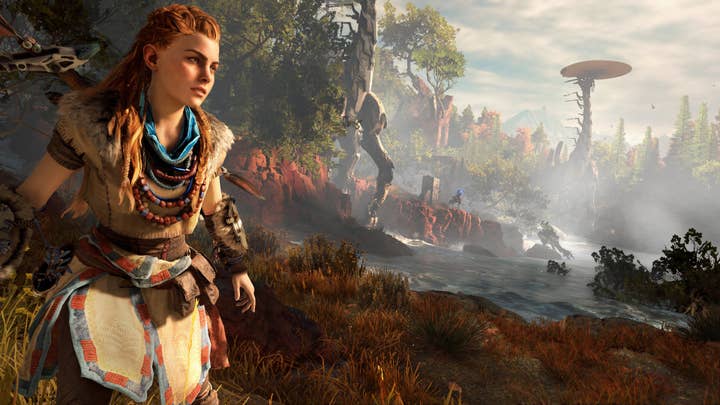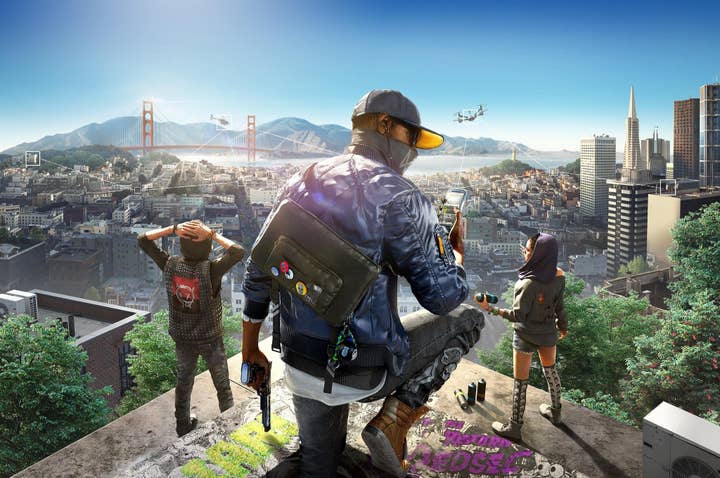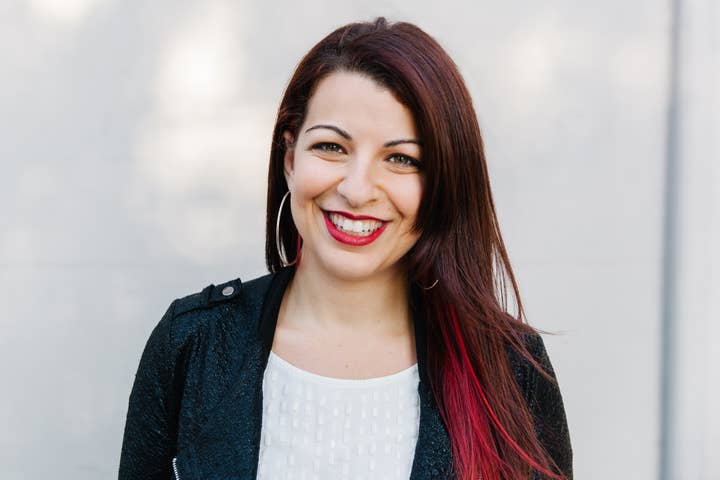Anita Sarkeesian: "No more excuses for the lack of women at E3"
The Feminist Frequency founder on the need for better representation, both with games characters and on-stage presenters
E3 2015, some declared, was the year of the woman. The return of Tomb Raider and Mirror's Edge was complemented by the debut of new female-led IPs like Horizon: Zero Dawn and ReCore. The diversity of gaming protagonists seemed to be improving.
Anita Sarkeesian was not so sure.
"Studies show that if 15% of background characters are female, you think it's 50/50 -- our brains just add that in," she says. "I thought that's what was happening -- we have such a lack of female protagonists that these felt like a bigger deal than these actually were. So, being the Debbie Downer that I am, I was like, 'Let's just count'."
And count she did. The first of Feminist Frequency's gender breakdowns for E3 showed that female characters only made up 9% of all announcements at the 2015 event. Males made up 32%. It was not the year of the woman.

Since then, Sarkeesian and her team have done the same analysis every year and -- with the exception of 2016 -- games with exclusively female protagonists have only ever accounted for 7% to 9% of announcements.
In 2016 -- "a very dark moment for the industry" -- there were only two female-led games: Horizon and ReCore, again. E3 2016 had no new female protagonists.
Sarkeesian acknowledges the limits of her analysis; it focuses on games at the major press conferences, and separates titles where you can design or choose from multiple characters. But she maintains this study can be a useful look at wider trends.
"E3 is the annual state of the industry," she says. "This is where studios and publishers decide what's worth showing and sharing. So while [our study] doesn't take into account every game released in a year, it shows what the industry thinks is most important."
E3 is also the wider world's window into games. With TV crews as abundant as traditional games journalists, no other event in the industry calendar is covered by as wide a range of press. It can be argued the event primarily targets a hardcore audience, but there's no escaping the way it represents video games on a global scale.
"Developers have had seven years to educate themselves and be better"
"Until something takes the place of E3, this is what we've got and we need to recognise it holds weight," says Sarkeesian.
It doesn't help that E3 focuses primarily on AAA console titles which, again, cater to a specific audience. Broader representation can be found in the indie space but while Xbox and PlayStation feature some of these games, it's usually in a montage. They are shown so briefly, with so little information, that Feminist Frequency is often unable to include them in its analysis.
Meanwhile, the shift towards multiplayer titles with customisable avatars like Fortnite means there has been "less resources and room for narrative games, which means there weren't more solo female characters."

E3 2019's press conferences are nearly upon us but Sarkeesian doesn't expect much improvement.
"I'm not giving up, but I'm looking at four years' worth of data telling me the exact same thing. I'm really curious to see what happens this year because my best guess, based on the facts, is it's not going to change. The industry hasn't changed in four years in terms of this particular issue.
"There are other areas in which we need to look at growth and change for the industry, but right now, the sheer baseline of 'have more female characters' is failing."
"I'm not giving up, but I'm looking at four years' worth of data telling me the exact same thing... The industry hasn't changed in four years in terms of this issue"
Change was always going to be slow. AAA games take three to four years to develop, but the conversation about the lack of female characters has become louder over the years -- particularly since the Kickstarter campaign for Sarkeesian's critique series, Tropes vs Women in Video Games.
"That was seven years ago," Sarkeesian says. "Developers have had seven years to educate themselves and be better. I had conversations about this two years after [the series launched], and I said, 'We need to give them more time.' But it's been seven fucking years. There are no more excuses."
She's pleased to see representation in games has improved in some ways, but it's often a case of one step forwards, two steps back. Sarkeesian cites Watch Dogs 2: a game about a black man fighting injustice and police brutality, but it's unable to explore these issues because it's limited by the mechanics of its genre.
Still, she remains hopeful now that people who have traditionally been marginalised are making their voices heard as writers, developers and media critics.

"Because of the people who have gotten the courage or space to talk about these issues, the conversation has changed and so we have seen progress," she says. "I know these data sets haven't changed, but there are other ways to assess this: there are big AAA games with females who don't look like the old Lara Croft, black men as protagonists, or trans sidekicks that are done in honest, healthy ways and not as a joke. They're not the majority, but they exist. There are teams trying to be better with representation.
"The Last of Us' Ellie being queer would never have happened ten years ago. But we created a mainstream conversation forcing studios to and people to look at their own values"
"The Last of Us' DLC about Ellie being queer would never have happened ten years ago. But we created a mainstream conversation forcing studios to reflect and people to look at their own values. And the people in those studios that are queer, trans, women, people of colour, disabled -- all these other identity markers -- are able to be seen more and speak up in ways that aren't going to hurt them."
Sadly, those people rarely make it to the big stages at E3. Feminist Frequency's analysis shows that Bethesda, for example, had 12 male presenters on stage during its 2018 conference and only one woman. Ubisoft had two women, but 14 men.
Sarkeesian notes there are many reasons for this, such as the lack of women in leadership positions, but also the audience reactions that come from stepping into such a wide-reaching media spotlight.
"Some parts of the gaming community is horribly toxic and treats women like shit," she says, adding that social media platforms aren't doing their due diligence in cracking down on such behaviour. "Why would marginalised folks want to put themselves out there?"
The E3 gender breakdown is just one part of a much larger conversation, and Sarkeesian acknowledges that large systemic issues like this can make it seem impossible for anyone to feel like they can contribute to its solution.
"But it's the people reading this article right now that need to fix it," she concludes. "Too often we look at it and think, 'yeah, but I'm not a bad guy, I can't do anything about it' or 'Well, what can I do in my space?'
"From a base level, you can just speak up for people being marginalised in your work space. You can bring up these issues in your next creative meetings, work to advocate the hiring of a more inclusive staff. There's so many things that can be done and I think too often we feel like the problem is so big, we don't have a role in it. But all of us have to participate in it."

